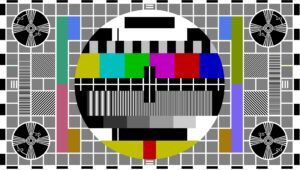This is not a test!!!

Personality “tests” deliver no right or wrong answers for whether or not someone should be on your team.
But they do offer, as Dr Jeromy Anglim, a Deakin University Psychology lecturer says, “a language for talking about individual differences and personal styles which many people find useful.”
Like a shorthand, cheat sheet or quick code for recognising a response and its likely motivation.
And then you can decide how you will handle it.
How does personality or temperament typing help?
Personality profiling is about understanding your own strengths and preferences and those of the people you work with for self and social awareness – key attributes of emotionally intelligent leaders.
How else will you recognise before it’s too late when a team member is struggling because your organisational structure doesn’t align with how they work best?
Hierarchical reporting, for example, can offer the clear boundaries some people need, while flatter structures suit those who do amazing work when weaving in and out of project teams.
When you don’t understand the individual personalities in your team, you could be frustrated when pre-set KPIs are not met, not respected and sometimes not even attempted.
But when you do, you can develop KPIs that draw on their strengths and preferred ways of working, communicating and learning.
Do different personality types work differently, even on the same tasks?
Yes. It’s not just about getting the job done. It’s also about the way it’s done – ideally not causing more problems than it fixes for others.
This can be tricky for project success and team cohesion when one person feels hindered or held back by another’s insistence on adhering to pre-determined schedules.
Or when a team member keeps tweaking until they feel the ‘whatsit’ is ready while everyone else is satisfied with the current version.
I’m yet to meet a manager or team leader who’s thrilled about the time they spend on refereeing personality rumbles.
What happens when everyone on the team is too similar?
There’s plenty of research that confirms personality profiling can help you identify who is suited to particular kinds of work and who will do them well.
This is particularly valuable for project teams – if everyone excels at planning but no one’s good at actually getting the job going or garnering the support it needs, then great ideas just stay stuck to the drawing board.
Diversity of personality (and therefore thinking, communicating and behaving styles) within a team can reduce the hazards of Groupthink , like poor decision-making and innovative ideas left unvoiced.
Are personality “tests” reliable indicators of a person’s aptitude for a job or a team?
Professor Nick Haslam at The University of Melbourne says they can be.
“Success at work is not simply a matter of being able to perform particular tasks. It also depends on motivation and the capacity to handle stress, complexity and the social context within an organisation. Personality traits are especially relevant to this broader context of work. They tell us how people are likely to behave rather than merely what narrow skills they possess…personality matters and tests that assess it can improve selection decisions.”
An effective profiling model will have a scientific basis that’s built upon years of evidence collection, analysis and validation.
The Assessment Standards Institute, which facilitates the development and application of the American Psychological Association (APA) standards for educational and psychological testing, has certified True Colors as exceeding generally accepted standards of Data Reliability, Construct Validity and Disparate Impact.
Yes, there are also studies debunking the power of personality profiling. And of course personality is a more complex concept than a ‘test’ score.
But as a recognisable sketch of what we are like more often than not, personality profiling models (like True Colors) can save you from hours of time and angst otherwise lost to wondering why the team can’t function effectively.
Let’s examine how True Colors personality profiling might help you bring out the best in your team. Tap the button to book a complimentary and unconditional Tell Me More Call.